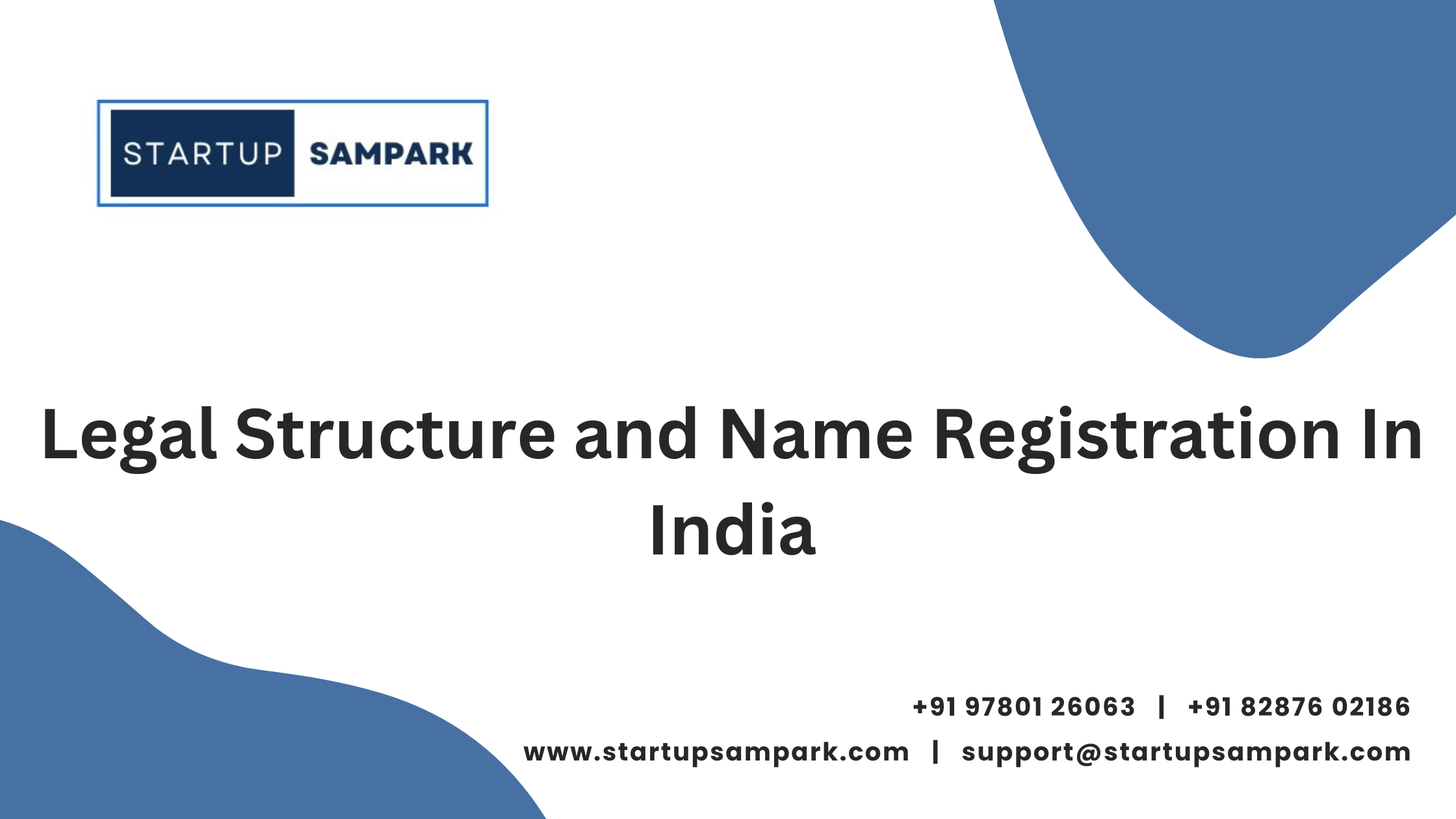Legal Structure and Name Registration In India
Choosing the Right Legal Structure
Selecting the appropriate legal structure is a pivotal decision when starting a business in India. This choice will impact your business’s liability, taxation, and operational framework. Sole proprietorships are the simplest form of business structure, where an individual owner has complete control and bears unlimited liability. This setup is well-suited for small businesses with minimal capital and regulatory needs. In contrast, partnerships involve two or more individuals sharing profits and responsibilities. Partnerships can be general, where all partners have equal liability, or limited, where some partners have restricted liability. This structure is ideal for businesses that benefit from collaborative input and shared resources.
Limited Liability Partnerships (LLP)
For businesses seeking a balance between flexibility and liability protection, the Limited Liability Partnership (LLP) offers an attractive option. LLPs combine the operational flexibility of a partnership with the advantage of limited liability, which protects personal assets from business debts and obligations. This structure is particularly beneficial for professional services and small to medium-sized enterprises that require both collaborative management and legal protection.
-
 Startup Registration (DPIIT Recognition)₹8,850.00
Startup Registration (DPIIT Recognition)₹8,850.00
Private Limited and Public Limited Companies
For those looking to scale and attract investment, Private Limited Companies (Pvt Ltd) and Public Limited Companies present distinct benefits. A Pvt Ltd company is a separate legal entity with limited liability for its shareholders, requiring at least two directors and shareholders. It is ideal for medium to large businesses seeking growth opportunities and investment. On the other hand, a Public Limited Company can raise capital by issuing shares to the public and must adhere to more stringent regulatory requirements, including having a minimum of seven shareholders and three directors. This structure is suitable for large enterprises aiming to expand their capital base through public investment.
One Person Company (OPC)
The One Person Company (OPC) provides a hybrid option for solo entrepreneurs who desire the advantages of a corporate structure without needing multiple shareholders. The OPC structure allows a single individual to own and operate the company while enjoying limited liability protection. This model is beneficial for solo entrepreneurs who wish to formalize their business while retaining complete control and management.
Name Registration Process
After deciding on the legal structure, registering a business name is the next crucial step. The process varies based on the structure chosen. Sole proprietorships and partnerships typically register their business names under the Shops and Establishments Act or obtain a trade license from local municipal authorities. For LLPs, Private Limited Companies, and Public Limited Companies, name registration involves obtaining approval from the Ministry of Corporate Affairs (MCA). This process ensures that the chosen name is unique and complies with legal standards.
Documentation and Compliance
Throughout the registration process, you must prepare and submit various documents, such as proof of address, identification documents of the owners or directors, and, in the case of companies, incorporation documents like the Memorandum of Association (MOA) and Articles of Association (AOA). Ensuring that these documents are accurate and complete is essential for a smooth registration process. Additionally, maintaining compliance with ongoing regulatory requirements, including annual filings and tax obligations, is crucial for the lawful operation of your business.
startup, company incorporation, india
-
 Startup Registration (DPIIT Recognition)₹8,850.00
Startup Registration (DPIIT Recognition)₹8,850.00















Post Comment